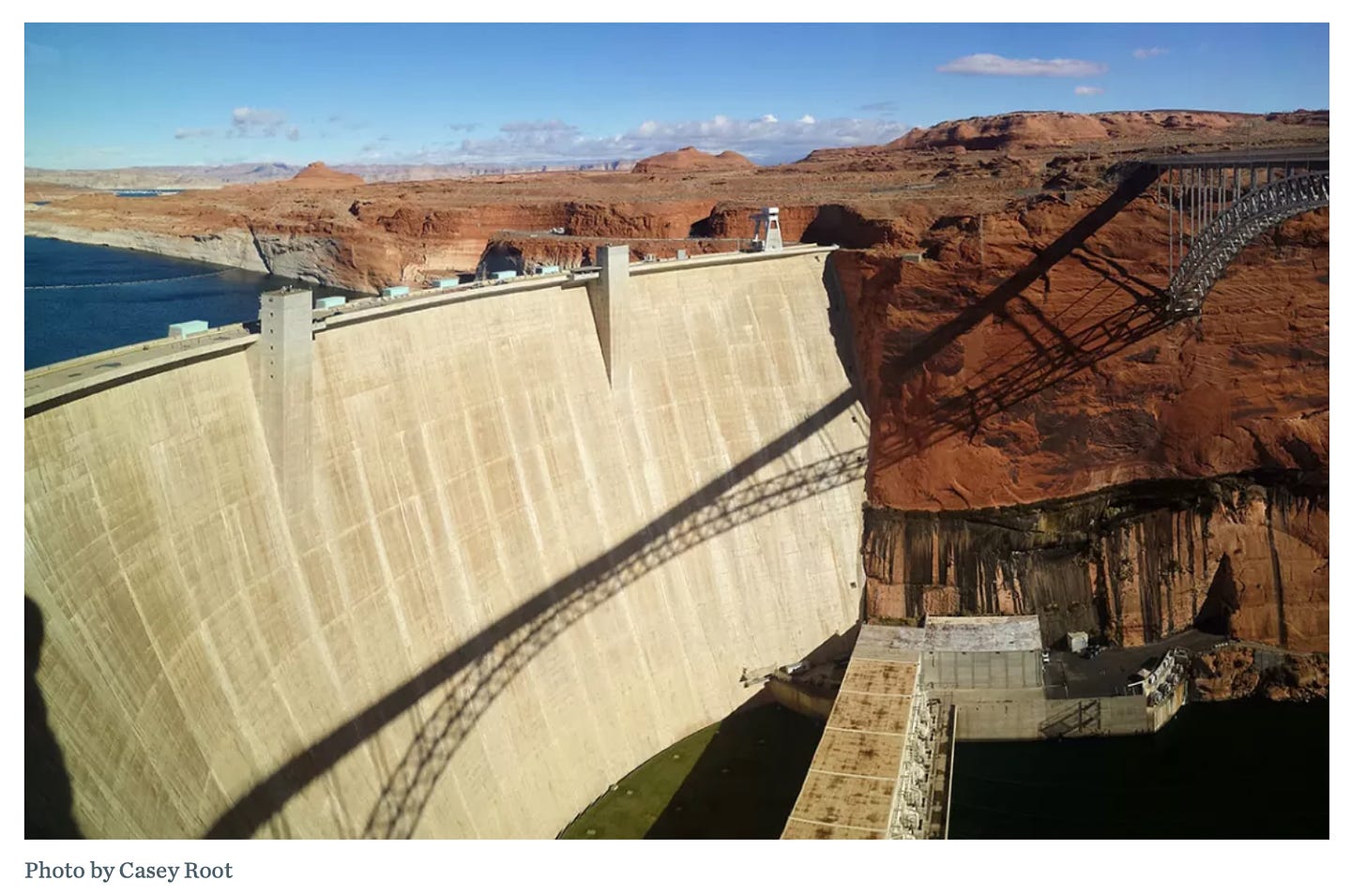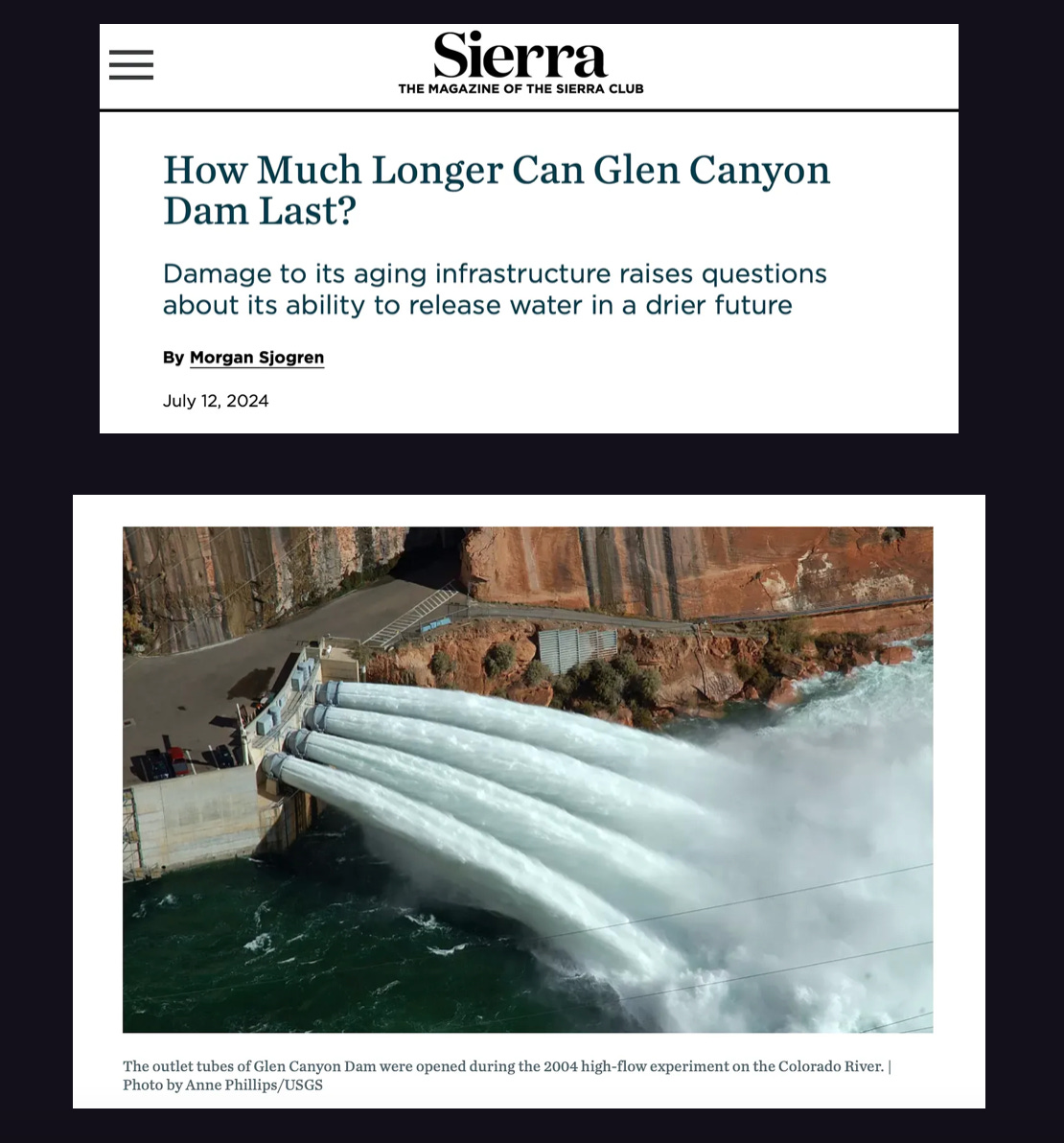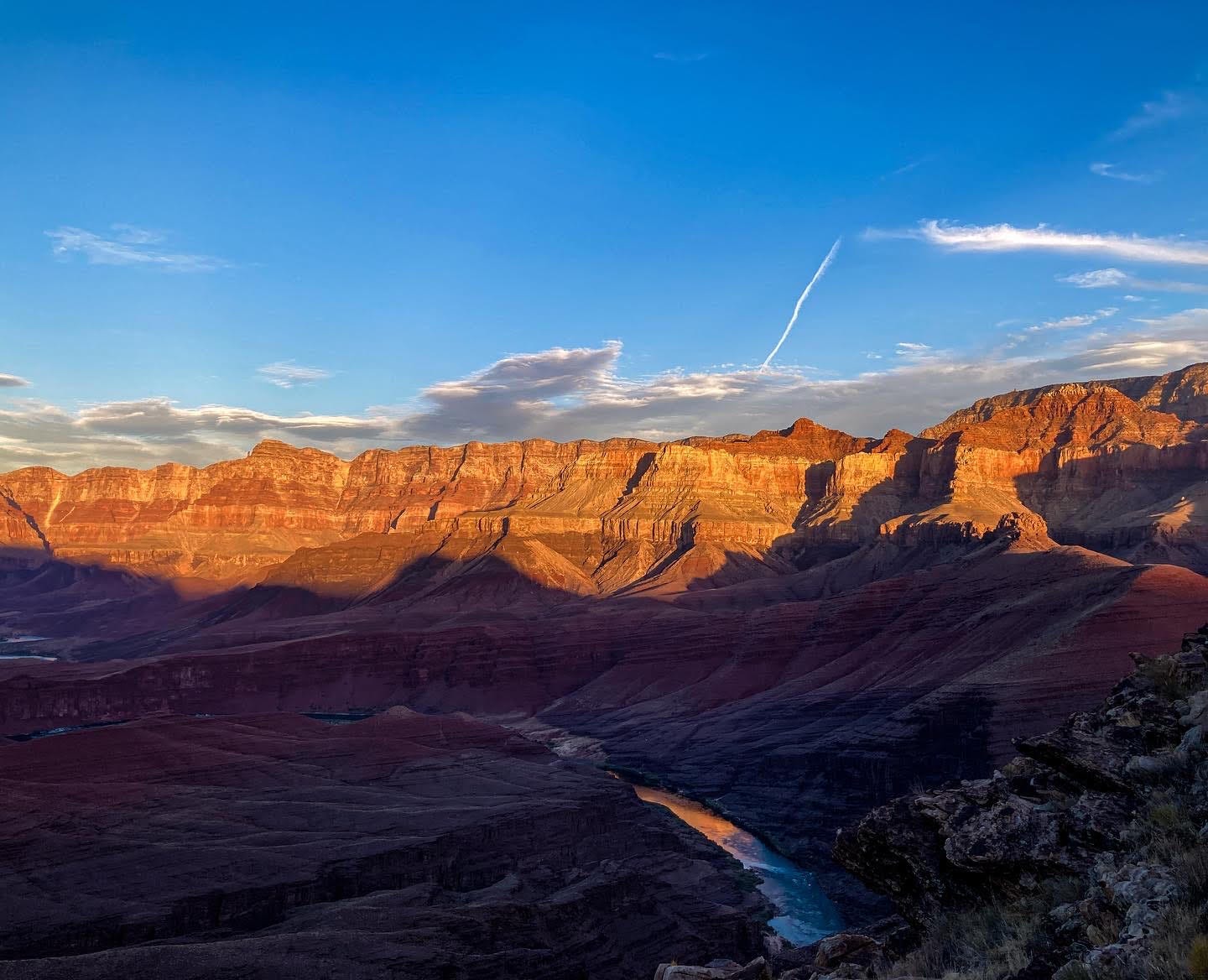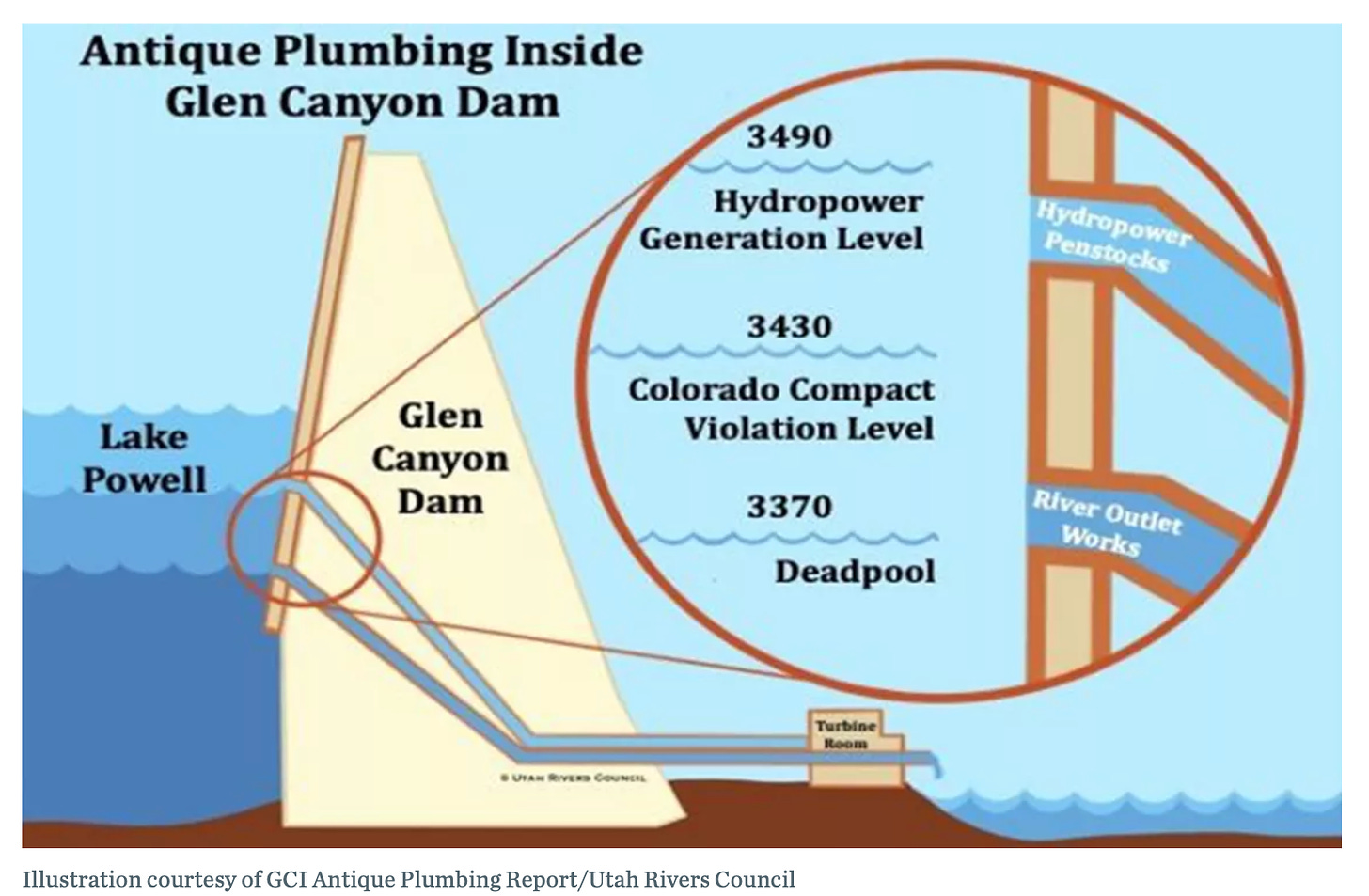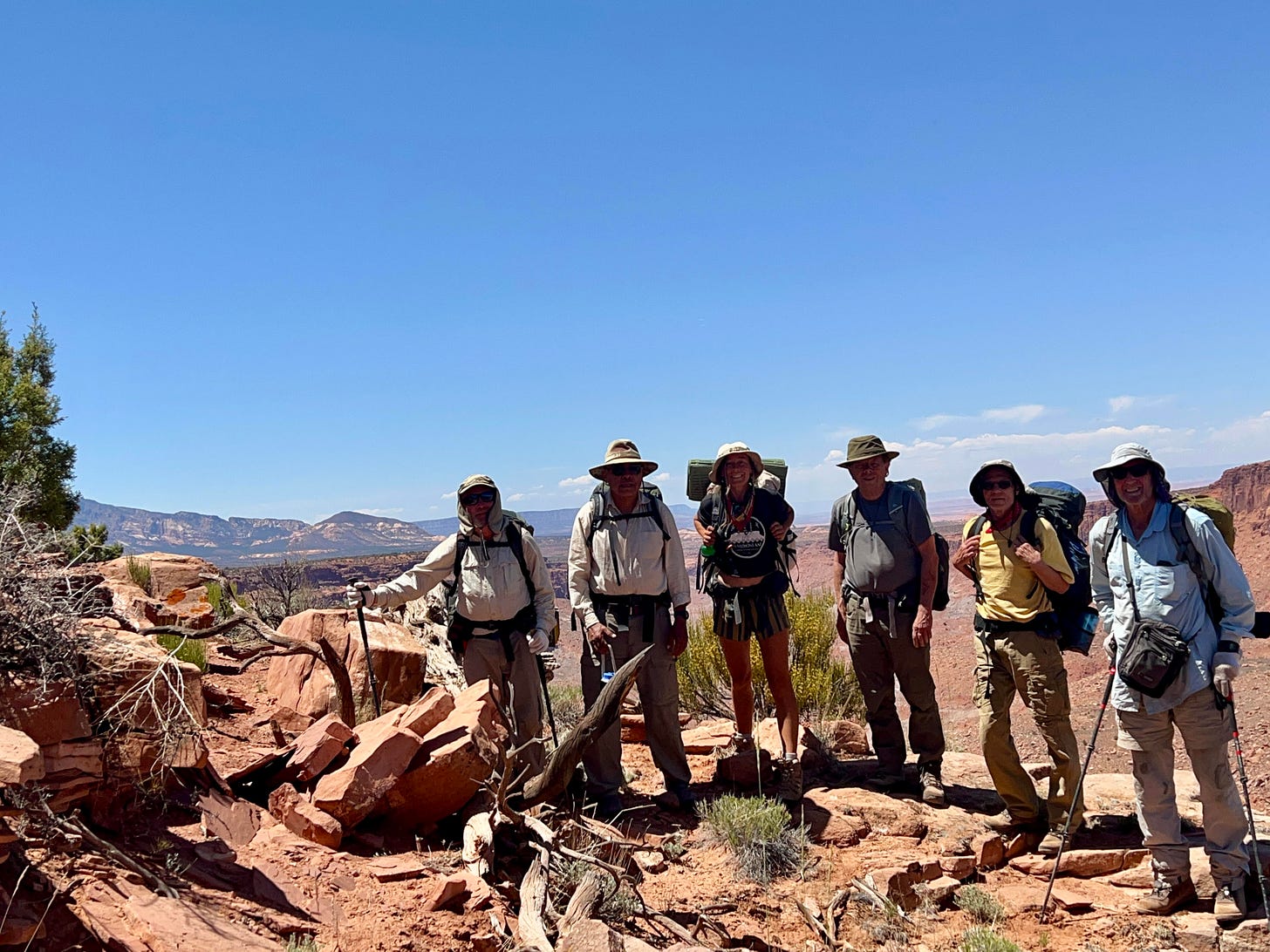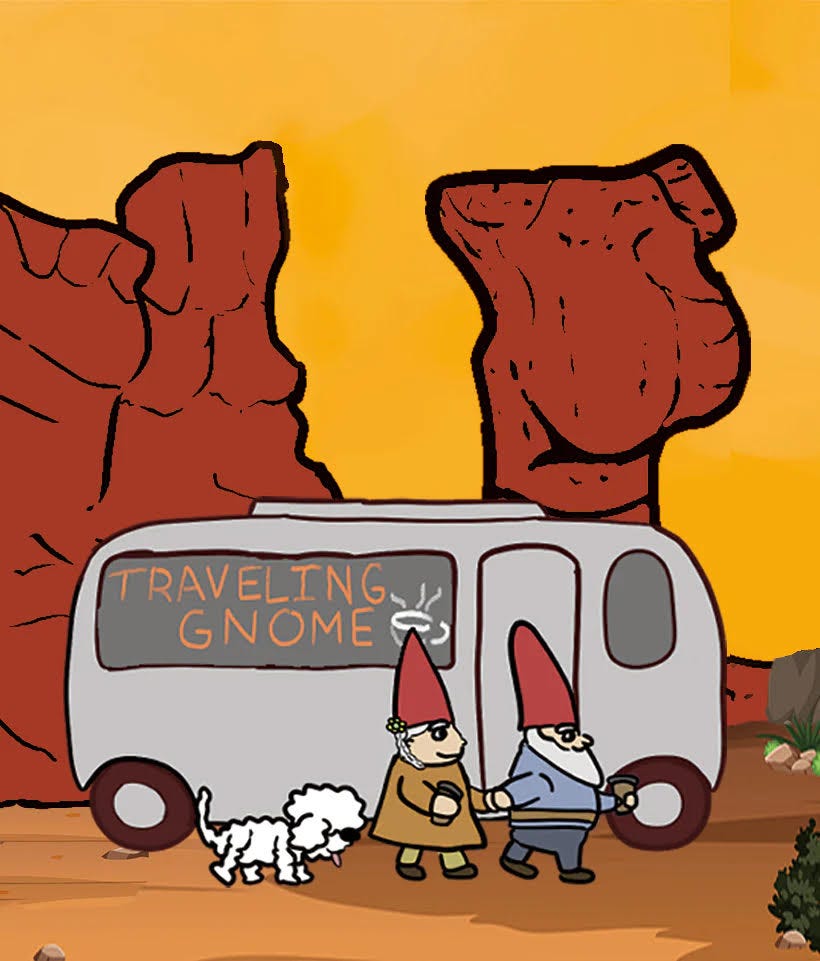There are a lot of questions about expiration dates right now, with front-page headlines probing the age-limiting capacities of both Presidential candidates. It feels thematically aligned with my latest story in Sierra Magazine: “How Much Longer Can Glen Canyon Dam Last?” No, I did not choose the title, the editorial team did as happens with many stories, which is something to consider as you read on.
Rather than join the mass of journalists recycling the questions about Biden’s age, and armchair political analysts and medical experts ceaselessly commenting on social media, it is pushing me to contemplate the current state of journalism embedded into the even larger social media landscape. And to question our methods of asking questions. Are there expiration dates for asking the same question?
During last night’s NATO Press Conference, I was encouraged by the reporters in the room who took up the opportunity to ask President Biden about foreign policy. This, after all, is why they were gathered. And it should be a more telling snapshot of his capacity to lead a country at any age than asking him different versions of, “Do you think you are too old to do this?” As a journalist, I find it to be a public disservice when everyone is asking the same question and expecting a different answer.
But this is not about that question at all, but rather, the news it is shaping. Nikole Hannah-Jones, former NYT Pulitzer Prize-winning journalist, explains: “As media, we consistently proclaim that we are just reporting the news when in fact we are driving it. What we cover, how we cover it, determines often what Americans think is important and how they perceive these issues yet we keep pretending it’s not so.” The quote is superbly contextualized in one of Rebecca Solnit’s latest pieces about the election in The Guardian.
Asking thoughtful questions is the foundation of journalism, and the role that plays in shaping public perception is something that must be used with respect and discretion. A climate of viral media is especially hostile to these tenants and likely has a much larger effect in amplifying the news being created than the questions themselves. This applies not just to journalists, but to entire editorial staffs that assign stories, refine their messaging, and frequently select the headlines that have the most immediate impact. Headlines that have the potency to impact the way a story is read and understood before the reader dives in.
This is where I redirect my course away from the Presidential race, and back to the Colorado River. My lead question is about the aging infrastructure of Glen Canyon Dam and its ability to release water in a drier future. Like Biden’s age, the dam’s aging infrastructure is not breaking news. Damage to the dam’s river outlet works was announced by the Bureau of Reclamation this spring, but reports show they have been aware of these effects since 1965.
The damage raises questions about the dam’s longevity. In 2022, environmental groups Great Basin Water Network, Glen Canyon Institute, and Utah Rivers Council released a report, Antique Plumbing & Leadership Postponed: How the Glen Canyon Dam’s Archaic Design Threatens the Colorado River Water Supply. The dam’s future is further limited by the buildup of sediments behind it. During a 2023 presentation, the Bureau of Reclamation slashed the anticipated expiration date for Glen Canyon Dam’s infrastructure from 700 years to a century—which we are already 61 years into.
During my research I wanted to better understand the cause and implications of the damaged infrastructure, but also what this means for the future of Colorado River management. Which led to larger questions:
“Are we going to have a serious public conversation about how we are going to vet and fund alternatives?” asked Kyle Roerink, executive director of the Great Basin Water Network. “Have there been conversations with Congress about this?”
This also opens questions about what involvement in these decisions will look like for Tribes and all water users below Glen Canyon Dam. If the water in Lake Powell drops below an elevation of 3,490 feet, Reclamation reports that the lower elevation river outlet works cannot be relied on to release water downstream. This raises grave concerns about the dam’s ability to supply water to California, Arizona, and Nevada in a drying climate. There currently is no backup plan to this issue, no Vice President Kamala Harris to pick up the reigns. And so the question remains:
“This is an issue that affects all water and power users below Lees Ferry. Will we have a public process for a world where we can’t keep [the water] over 3,490?” ––Kyle Roerink, Great Basin Institute
There are big questions in front of us about our future in the United States. No, water is not the Presidency or state of democracy, but it is fundamental to all life. The Colorado River supplies that life source to 30 million people in the West and is used to grow crops essential to our domestic food supply.
Instead of asking the President the same questions on rotation, what questions do we, the American people, need to confront ourselves with as we face an unprecedented election in unprecedented times? The best questions, lead not always to answers, at least not immediately, but to other questions. We need to keep asking questions that offer momentum while being mindful of questions that keep us stuck. Everything has an expiration date.
**And now I need to lighten up my mind. For that, I highly recommend Kar-Wai Wong’s quirky pop art drama “Chung King Express.”**
On the horizon: History adventures in the style of Path of Light! My next feature in this genre is in the August issue of Arizona Highways (coming soon!) I am also dreaming up a series of long-form stories in this style that blends Colorado Plateau history with personal narrative, modern insights, and exploration. Oh and photos. These will be available to paid subscribers to account for the time and research (both archival and on the land) that goes into them. If you formerly read my stories in The Gulch Mag or have tuned into AZ Highways over the years, these are for you! I will offer a preview for free to subscribers for a taste of what you are getting into. I can’t wait!
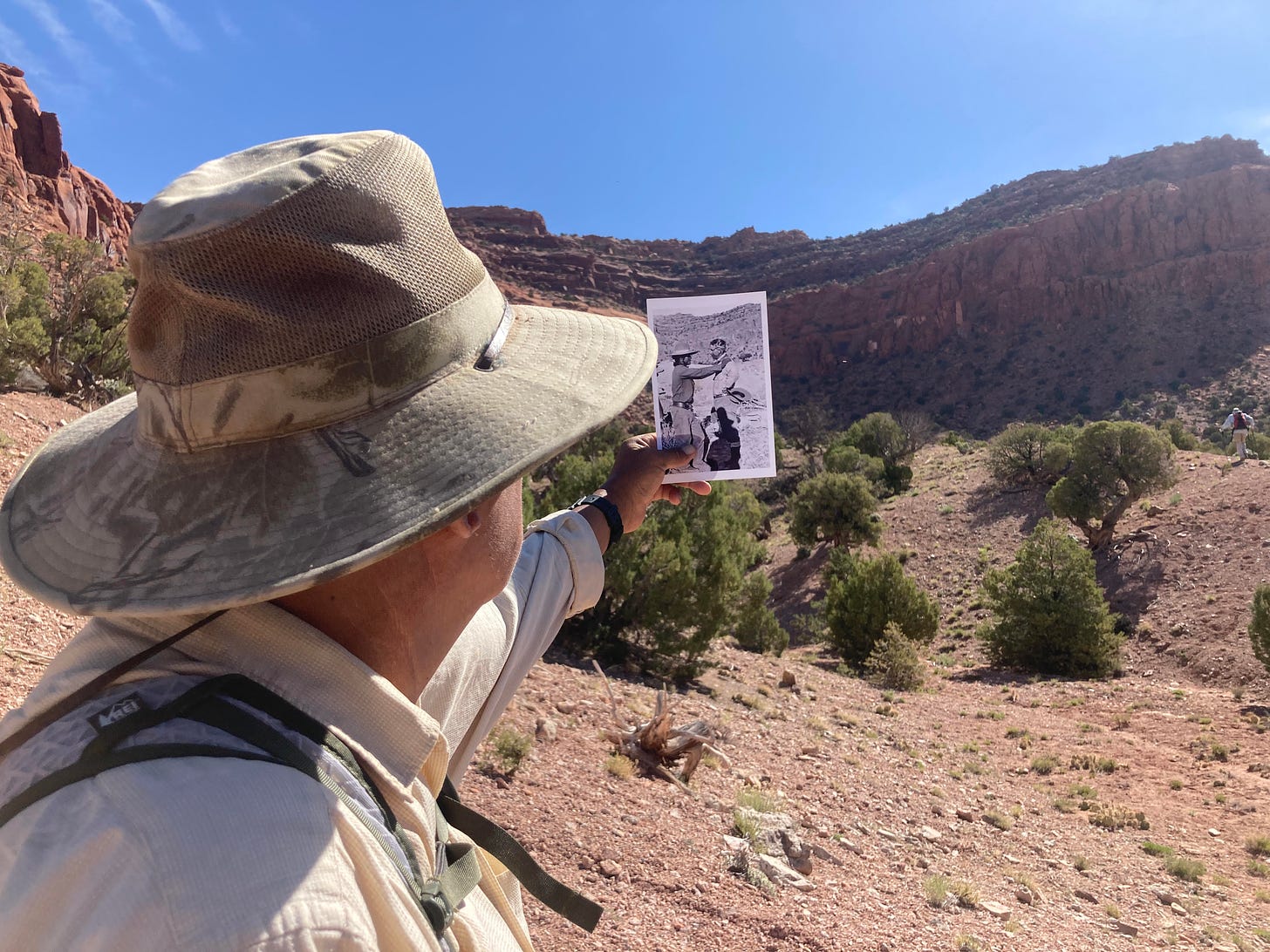
Another way to support this publication––buy yourself some Traveling Gnome Coffee using code Mo20 for 20% off. I get a small commission so that I can keep mainlining caffeine while I write! ☕️ 🧡




